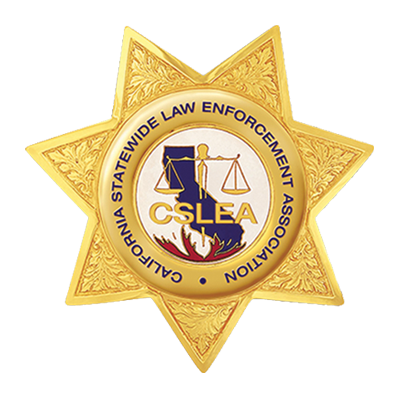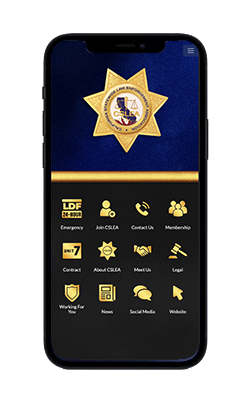By Shane LaVigne and Jennifer Roe, Capitol Advocacy
September 1, 2020
SUMMARY – The California Legislature adjourned its 2019-2020 legislative session last night at midnight, the Constitutional deadline for all bills to pass both houses of the Legislature. True to the nature of what 2020 has been, the last week of session was not without its share of drama and excitement. Late last week, a member of the Senate Republican Caucus tested positive for COVID-19; after the Senate canceled session on Wednesday to conduct contact tracing and sanitize the Capitol building, they found all but one Republican Senator were in contact with the member, requiring all Republicans to quarantine and participate in session remotely.
With technical difficulties, long delays, the clock winding down, and several bills still needing to be heard, Democrats moved to limit the time each bill took to debate after Republicans brought up several sets of floor amendments to Assemblymember Lorena Gonzalez’s bill to exempt certain industries from the Dynamex decision regarding independent contractors versus employees. After an hour of debate on the amendments to one bill, it was clear the Republican’s strategy was to delay as it got well into the evening hours. The Democrats’ attempt to limit debate brought outrage – and even some cursing – as Republicans demanded the motion to limit debate was against the Senate Rules. After much internal discussion, the Democrats chose to forgo the time limits and continue on. As the clock struck midnight, several measures were left on the agenda that effectively died due to the time constraints.
Below are the outcomes of CSLEA’s top priorities at the end of session:
AB 2699 (Santiago), sponsored by CSLEA, provides exemptions from California’s unsafe handgun law, for the remainder of CSLEA membership. The bill passed out of both houses and moves to the Governor’s desk.
AB 2891 (Jones-Sawyer), another CSLEA sponsored bill that codifies the classification change for the Museum Security Officers at the California Science Center from the Bargaining Unit 7 MOU, unfortunately got caught up in a tug-of-war battle between the Senate and Assembly. As session continued to see delays because of the COVID-19 pandemic, the leaders in both houses agreed to limit the number of bills each member carried; unfortunately, the Assembly sent 4 times the number of bills to the Senate. That said, AB 2891 was one of the bills the Senate decided to hold as part of their tactic to limit the number of bills. CSLEA has every intention of running the bill successfully next year.
AB 1945 (Salas), co-sponsored by CSLEA, designates public safety dispatchers as first responders. CSLEA Senior Vice President and CHP Public Safety Dispatchers Association (CHP-PSDA) President Tina Brazil worked hard on this bill throughout the year. Brazil’s testimony in committee provided the Assemblymembers with a first-hand account as to why AB 1945 is so important to dispatchers in the state. After working with the California Professional Firefighters and PORAC to remove their opposition early in the process, CSLEA helped usher this bill to the finish line. It now awaits the Governor’s signature.
AB 664 (Cooper) would have provided a workers’ compensation presumption for COVID-19 exposure for public safety personnel. Unfortunately, the bill was not taken up on the Senate floor; however, SB 1159 (Hill), which also provides this presumption to a number of Bargaining Unit 7 investigators and peace officers, passed and moves to the Governor’s desk.
SB 731 (Bradford), the licensing and decertification bill, was not taken up on the Assembly floor and, therefore, is dead for the year. After the author and proponents amended the bill with only a week left in the session that left the bill truly unworkable, CSLEA and other law enforcement organizations lobbied to not move the bill this year and to continue conversations on a fair peace officer certification process in the fall. This issue will be back next year.
SB 776 (Skinner), expands on her SB 1421 from a few years ago, requiring certain peace officer records to be released. The bill as amended would have included even unsustained findings to be released; however, after working with the Senator on amendments, CSLEA and other law enforcement groups were able to secure amendments to make the bill workable and fair. With these amendments, CSLEA was able to remove its opposition to the bill. However, due to time constraints, the bill ultimately failed after passing the Assembly but not being taken up in the Senate before the midnight deadline. We expect this bill to return next year.
AB 1196 (Gipson), the carotid restraint and choke hold ban, passed both houses and moves to the Governor’s desk. Law enforcement requested an amendment to ensure these restraints could be used in self-defense. After the author was unwilling to put clarification in the bill, he agreed to write a Letter to the Journal stating the intent of AB 1196 was not to preclude an officer from using the restraints in self-defense. With that action, law enforcement groups removed their opposition.
—-
Other pertinent issues that moved to the Governor’s desk include AB 1299 (Salas), requiring law enforcement agencies to report information regarding an officer’s employment status including whether they were terminated or leave a post with a complaint, charge or investigation about them to POST, and AB 1506 (McCarty), which requires the Department of Justice to review use-of-force policies and allows a state prosecutor to conduct investigations into officer-involved shootings. CSLEA will continue to advocate for POST to receive more funding should AB 1299 be signed into law. CSLEA will also continue to oppose AB 1506 and request the Governor veto this bill.
Along with the other victories CSLEA secured this year, several other bills amended late in the session that would have significantly changed the policing profession stalled. AB 1022 (Holden), which reversed course on the use of force definition agreed upon in AB 392 (Weber) from last year and would have required all use of force incidents to be reported, the bill died in the Senate Appropriations Committee. AB 1599 (Cunningham), which would have required law enforcement agencies to complete investigations into an allegation of use of force, sexual assault, discharge of a firearm, dishonestly or misconduct if the officer resigned in lieu of termination, also stalled at the end of session. Also, AB 66 (Gonzalez) prohibiting the use of projectiles during protests, was not taken up for a vote and also died.



